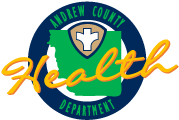When you go out to eat, grab a coffee, or pick up groceries, you are probably not thinking about the work happening behind the scenes to keep your food safe. Yet every meal you enjoy relies on careful handling, preparation, and sanitation practices to protect your health.
At the heart of this system are food safety inspections. These inspections, carried out by organizations like the Andrew County Health Department, help protect the community by ensuring that businesses meet important safety standards. They are not about creating hurdles for businesses. They are about making sure that every resident and visitor in Andrew County can enjoy meals with peace of mind.
This article is for educational purposes only and is not intended as legal or medical advice. If you own a business or have questions about specific food safety regulations, it is important to consult with your local health department or a qualified food safety professional.
What Food Safety Inspections Are Designed to Do
Food safety inspections are routine checks that help identify potential risks in food preparation and service environments. The goal is to prevent the spread of foodborne illnesses, which can occur when food is contaminated with harmful bacteria, viruses, parasites, or chemicals.
During an inspection, trained public health professionals review several aspects of a business’s operations, such as:
- Food storage practices
- Cooking and holding temperatures
- Cleanliness of food preparation areas
- Personal hygiene of staff members
- Proper sanitation of equipment and surfaces
- Pest control measures
- Proper labeling and dating of foods
Every part of the inspection is tied to helping businesses operate in a way that prioritizes public safety. Inspections are not meant to be punitive. They are opportunities for businesses to correct issues, improve practices, and stay in compliance with local, state, and federal regulations.
Why Food Safety Inspections Matter More Today
Public health challenges have evolved over the years, and food safety concerns have expanded along with them. In today’s world, food comes from a wide variety of sources, travels long distances, and passes through many hands before reaching your plate. This complex supply chain creates more opportunities for something to go wrong if strict safety practices are not followed at every step.
Food safety inspections in Andrew County help provide a safeguard against these risks. Local inspectors work directly with restaurants, grocery stores, schools, and other food service operations to make sure food is being handled safely from the moment it arrives at a facility to the moment it is served.
By regularly inspecting businesses and offering guidance on best practices, public health departments help prevent outbreaks of illnesses like salmonella, E. coli, norovirus, and other foodborne diseases that can have serious consequences.
The Impact of Foodborne Illness on Communities
Foodborne illness does not just affect individuals. It impacts entire communities. When outbreaks occur, they can lead to:
- Widespread illness and hospitalizations
- Lost productivity for businesses and workers
- Higher healthcare costs
- Damage to the reputation of local businesses
- Strain on public health resources
Preventing outbreaks through proactive inspections and education helps protect the health and stability of the community. It also helps maintain trust in local restaurants, markets, and service providers.
What Businesses Can Expect During a Food Safety Inspection
If you operate a food service business in Savannah or anywhere in Andrew County, you can expect regular visits from local health inspectors. These inspections are generally unannounced, meaning they occur without prior warning to ensure that everyday practices, not just special preparations, are being observed.
During an inspection, health officials typically look for:
- Proper food storage with safe separation of raw and cooked items
- Maintenance of appropriate temperatures for refrigeration and hot holding
- Cleanliness of kitchens, prep areas, storage spaces, and restrooms
- Proper handwashing facilities and staff hygiene practices
- Pest control measures, such as traps and sealed entrances
- Accurate record-keeping for food deliveries, storage dates, and cleaning schedules
- Correct use of sanitizing solutions for surfaces and equipment
Inspectors are not looking to shut businesses down. Their goal is to help operators recognize risks and correct them quickly. In many cases, small adjustments like reorganizing a refrigerator, retraining staff on handwashing protocols, or updating cleaning schedules can make a major difference.
Food Handler Permits: A Critical Part of Food Safety
In addition to inspections, one important part of the local food safety system is food handler training and certification. In Andrew County, food service workers are often required to obtain a food handler permit to demonstrate that they understand basic safety principles.
Topics typically covered in food handler training include:
- Proper food storage and handling techniques
- Safe cooking temperatures for meats and other high-risk foods
- Personal hygiene and preventing contamination
- Cross-contamination prevention strategies
- How to clean and sanitize kitchen equipment and workspaces
Obtaining a food handler permit in Savannah MO not only helps workers understand how to protect customers but also empowers them to take pride in their role in maintaining public health. Businesses that encourage or require their staff to maintain current permits demonstrate their commitment to safe operations.
The Role of Andrew County Health Department
The Andrew County Health Department plays a central role in protecting food safety in the community. Their responsibilities include:
- Conducting regular food safety inspections for restaurants, schools, retail food establishments, and other licensed facilities
- Offering food handler permit programs and education
- Investigating complaints or concerns about food establishments
- Supporting food businesses with information and resources to maintain compliance
- Responding to and managing foodborne illness outbreaks if they occur
By working closely with both consumers and businesses, the health department acts as a bridge between public health policy and everyday operations, helping to ensure that food safety standards are understood, practical, and effective.
Supporting Businesses, Not Just Regulating Them
Good food safety practices are good for business. Customers are more likely to trust and return to restaurants, grocery stores, and caterers that maintain clean, safe environments.
The Andrew County Health Department does not approach inspections as adversarial encounters. Their focus is on supporting businesses, offering guidance, and helping operators build safer practices that protect both their bottom lines and their communities.
In many cases, the health department offers technical assistance, best practice advice, and educational materials to help businesses succeed. Rather than viewing inspections as something to fear, businesses are encouraged to view them as opportunities to learn, improve, and build even stronger operations.
How Residents Can Help Support Food Safety
Consumers also play an important role in food safety. By being aware and proactive, residents can support safe practices both when dining out and when preparing food at home. Some simple steps include:
- Observing cleanliness when visiting restaurants or markets
- Washing hands before eating
- Notifying establishments or the health department if they observe concerning practices
- Properly storing, cooking, and handling food at home
When the entire community embraces food safety, the benefits are shared by everyone.
Final Thoughts
Food safety inspections are a critical part of protecting public health in Andrew County. They help ensure that the meals we enjoy at restaurants, schools, and community events are prepared safely and responsibly.
The Andrew County Health Department is proud to serve the Savannah community by providing inspections, training, and support to food service establishments. Their work helps keep our community strong, healthy, and confident in the food choices available to them.
This article is intended to provide general education about the importance of food safety inspections and the role of public health departments. It is not intended as legal or regulatory advice. For specific questions about inspections, food handler permits, or compliance requirements, contact the Andrew County Health Department directly.
If you are a business owner or manager in need of a food handler permit in Savannah MO, or if you have questions about food safety inspections in Andrew County, reach out today. Our community is healthier and stronger when everyone works together to keep food safe.




